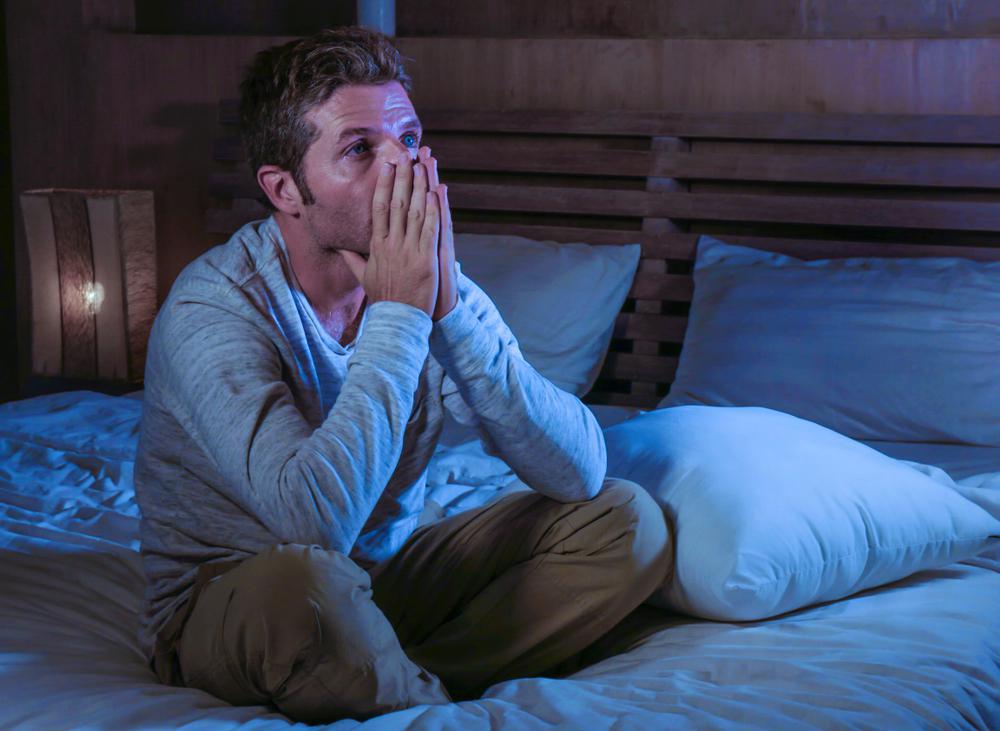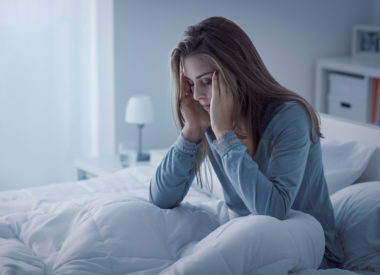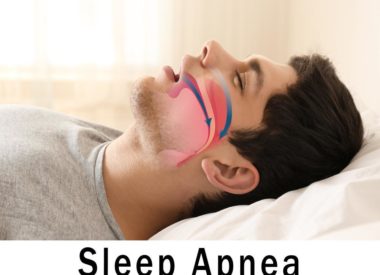Stress, Anxiety, Depression and the Role of Sleep
Research may support the idea that quality sleep can help reduce high levels of stress, anxiety and address symptoms of depression. What is the relationship between sleep and stress, anxiety and depression? If you get more or better quality sleep, will that help you feel calmer and less depressed?
Additional factors related to sleep and sleep deprivation are being researched. We do know that sleep has far-reaching results and can impact many aspects of your waking life. Understand more about the role of sleep and stress, anxiety and depression.
What is the Role of Sleep and Stress?
Stress and sleep problems are common for many. As April is Stress Awareness month, people are beginning to understand more about the impact stress can have on the body and seek treatment for sleep problems related to stress. What do you already know about stress?
Short-term stress and our response to it, as hardwired in the human organism, can help us flee from predators. It is a built-in process to help us focus and quickly respond to environmental stimuli and dangers. These days, predators may come in the form of credit card bills, mortgages or a demanding boss. The stress response can help get work done and exert ourselves more in the short-term. Issues come along when high stress levels are experienced over longer durations.
Long-term stress becomes an issue to both the mind and body. Restless nights and sleep deprivation are just a tip of the iceberg. A lack of sleep makes it more difficult to feel focused and be productive and can interfere with the decision-making process and how we communicate. All of which can make individuals feel higher levels of stress and turn to stimulants like coffee to get through the day or alcohol to unwind. Both of which can undermine efforts to get an adequate nights sleep. How can stress itself negatively impact sleep?
A Stress in America survey highlighted the relationship between stress and sleep. Results show that stress appears to be interfering with sleep and many people experiencing stress are not getting the quality of sleep needed for good health. As reported on the survey:
- 43 percent of participants stated that stress resulted in them lying awake at night during the past month;
- 45 percent of adults feel more stressed versus five percent with low stress as an effect of too little sleep; and
- Feelings of sluggishness, laziness, irritability, trouble concentrating, sadness or depression are experienced by various participants.
A significant number of participants said that stress levels increase when they experience shorter and poorer quality sleep. This has an impact on many areas of their life.
Some participants found themselves losing patience easily, yelling at children, partners or spouses and skipping healthy activities such as exercise. Those experiencing higher stress levels often also have difficulty getting to sleep or enjoying continuous sleep.
People with little sleep appear to have more issues with effectively handling routine stresses that occur during their day. Adults are not the only ones not getting enough sleep and experiencing higher than normal stress levels. Teens are also at risk of experiencing sleep deprivation and high stress levels. Seattle teenagers and adults can review treatment options at Sound Sleep Heath.
What is the Role of Sleep and Anxiety?
Individuals with sleep disorders are more likely than not to experience higher levels of anxiety and depression. However, even those not diagnosed with a sleep disorder but only experiencing sleep deprivation over a short period can begin feeling more irritable and anxious than usual. Where is the science to back this up?
Research on persons with anxiety and sleep problems, such as insomnia, demonstrate a repeated relationship. Researchers and doctors have seen that those with insomnia also have higher levels of anxiety and depression when compared with the average sleeper. It was found that such individuals have a 17 times greater likelihood of experiencing clinical anxiety and are10times more likely to have clinical depression. Sleep disorders such as insomnia and obstructive sleep apnea can make it more difficult to get to sleep and aggravate symptoms of anxiety and depression.
It can become harder to get a restorative nights sleep as increased levels of anxiety and stress can make it difficult to unwind and quiet the mind for bed. This vicious cycle compounds feelings of anxiety and can heighten symptoms of other sleep disorders and mental health conditions. Restorative sleep is natures way of reducing stress and anxiety levels and allows sleepers to feel refreshed and reinvigorated upon awakening.
What is the Role of Sleep inDepression?
Approximately 20 million Americans experience symptoms of depression. Depression and anxiety are often intertwined in that where one appears the other may soon follow. Clinical depression is a serious condition for many and those diagnosed with the condition often report difficulty getting to sleep, fragmented sleep and not feeling rested. Those experiencing sleep onset and sleep maintenance insomnia are at the highest risk of developing depression. Sleep disorders can make it more difficult to enjoy quality sleep and give rise to symptoms of depression.
People that experience SAD or Seasonal Affective Disorder may find symptoms worsen when living in areas with fewer sunny days. A transplant to Seattle writes of her experience and SAD symptoms including:
- Daytime sleepiness and an increase in sleep;
- Difficulty concentrating;
- Feelings of depression or sadness;
- Anxiety; and
- Weight gain.
A diagnosis of SAD or other conditions such as clinical depression is the first step to dealing with the condition and taking steps to reduce the severity of symptoms. People undergoing treatment may begin to feel less sleepy, more focused and have a better nights rest. The amount of sunshine and general weather in an area such as Seattle may make symptoms such as in SAD more pronounced.
Another common sleep disorder is obstructive sleep apnea. Obstructive sleep apnea occurs when a person wakes briefly and frequently during a sleep cycle. This condition has been often linked to depression. In a study of approximately 19,000 people, individuals with the condition had a five times greater risk of experiencing clinical depression. Some researchers believe that when sleep continues to be disrupted again and again, brain activity is altered as well as the neurochemicals produced. A lack of quality, uninterrupted sleep can impact mood and behavior.
Lauren Hale, Ph.D. of the National Sleep Foundation shares that there is a real connection between sleeping problems and depression. According to the HealthiNation video, Hale gives information about a chicken or the egg issue at work. Some people may be diagnosed with depression before a sleep problem begins. Others may report sleep issues long before symptoms of depression develop. Hale reports that many who treat their depression find that they begin to sleep better and vice versa. People who begin treatment for sleep problems often experience fewer and less severe symptoms of depression. A range of treatments are available at Sound Sleep Heath to help those in the Pacific Northwest with symptoms of depression and sleep disorders.
Address the underlying cause of interrupted sleep. Contact the experts at Sound Sleep Heath at (425) 279-7151 for more information or use the form below. Receive the help needed to allow you to sleep and feel better tonight.



